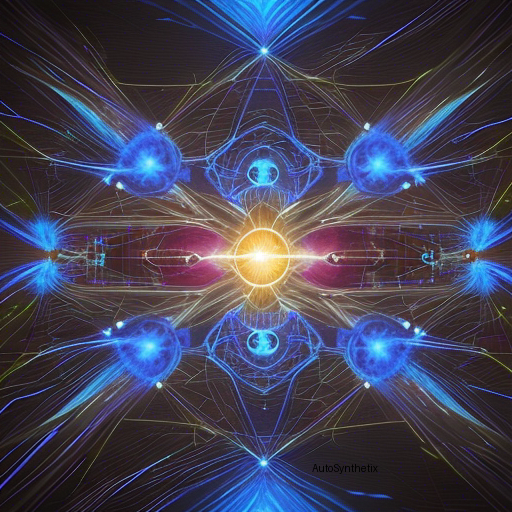Introduction
In today's scientific landscape, the world of high-energy physics continuously strives towards unveiling deeper truths hidden within subatomic realms. One such groundbreaking experiment, the High-Luminosity Large Hadron Collider (HL-LHC), demands innovative techniques to optimize its data processing capabilities - particularly when reconstructing complex patterns emerging from trillionth-of-a-second interactions. Enter 'distilling', a novel AI strategy promising rapid advancements in pattern recognition for these demanding environments.
The Concept Behind Knowledge Distillation - Bridging Complexities Across Neurons
Training a neural network often requires significant computational power, especially larger models designed for more accurate predictions. However, harnessing the full potential of these gargantuan architectures may lead to overconsumption of vital resources, causing bottlenecks in real-world applications like the upcoming HL-LHC project. To address this issue, researchers have turned to a technique known as 'knowledge distillation'.
This process involves compressing vast neural nets into smaller yet highly efficient counterparts without sacrificing performance quality. The key lies in leveraging pretrained 'teacher' models, extracting critical insights, then imparting them onto a streamlined 'student' architecture. By doing so, scientists ensure a seamless transition of crucial domain expertise across varying scales of neuronal structures.
Applying Distillation in High-Energy Physics - Case Study: CERN's Probe Into Smaller Networks
To validate the efficacy of knowledge distillation in accelerating data reconstructions within the realm of high-energy physics, a team led by Benedikt Maier et al. devised a proof-of-concept experiment using two distinct approaches - Graph Neural Networks (GNN) acting as teachers, followed by Deep Neural Networks (DNN) serving as students. Their focus lay primarily upon identifying particles stemming directly from initial collision events amidst myriads generated subsequently.
By implementing a methodology dubbed "DistillNet," they managed to achieve impressive outcomes. Student DNNs successfully ingested the compressed wisdom passed down from GNN instructors – revealing negligible losses in accuracy despite drastically reduced size requirements. Furthermore, deploying both CPU-bound distilled DNNs alongside specially tailored Quantized & Pruned versions running on Field Programmable Gate Arrays showcased further efficiency gains under diverse hardware constraints.
Embracing AI's Potential in Pursuit of Subatomic Enigmas
As humankind delves ever deeper into the microcosmic sphere, advanced technologies must adapt accordingly to keep pace with our insatiable thirst for understanding. Through the implementation of knowledge distillation strategies, the future appears brighter concerning high-energy physics research endeavours. Notably, the success achieved by this pioneering work paves the way for widespread adoption throughout similar projects worldwide – ensuring optimal utilization of precious computational resources even under stringent conditions set forth by colossal experimental facilities like the HL-LHC.
Conclusion
With the advent of knowledge distillation methods, the intersection between high-performance computing, machine learning, and particle physics becomes increasingly intertwined. As technology continues evolving apace with human curiosity, solutions like DistillNet promise to propel breakthrough discoveries once thought impossible due solely to immense data handling challenges inherently present in next-generation high energy physics experiments.
Source arXiv: http://arxiv.org/abs/2311.12551v2
